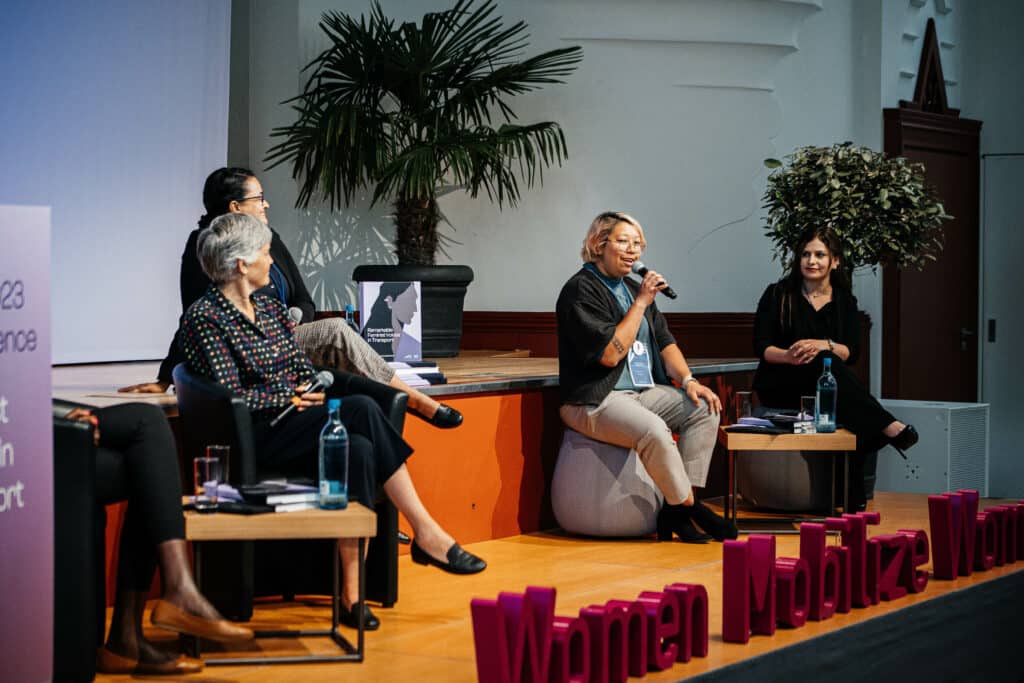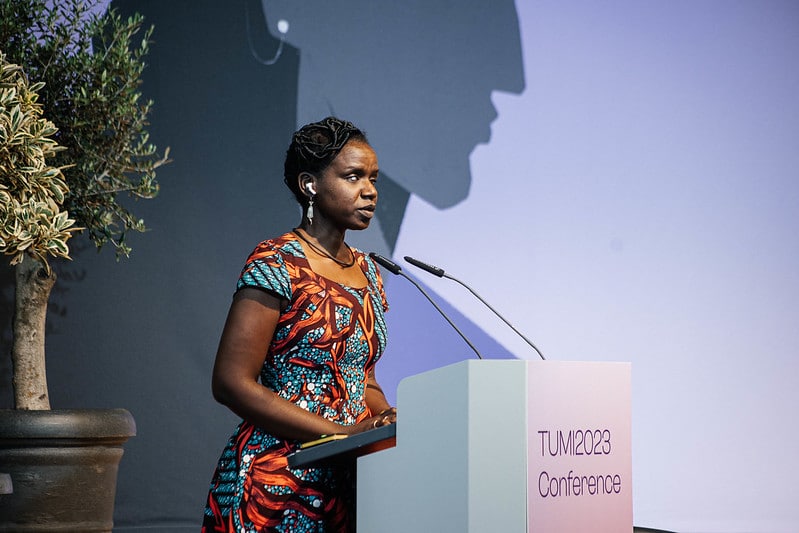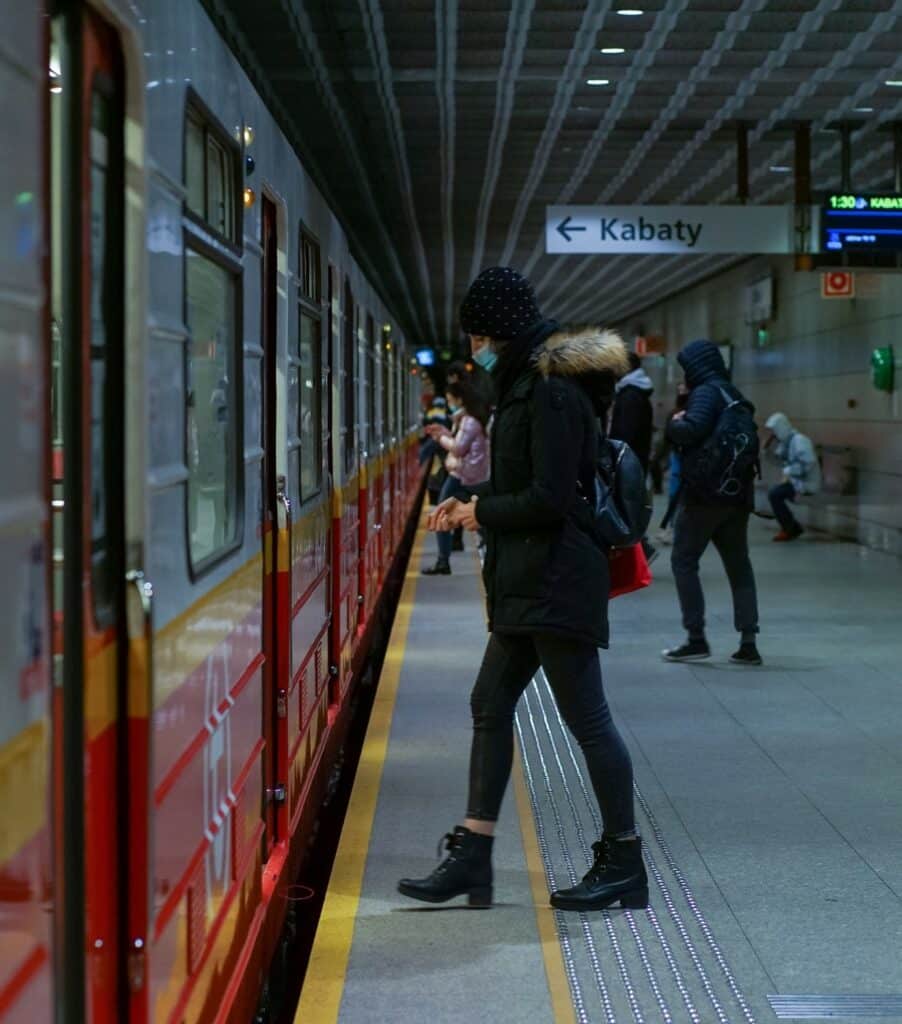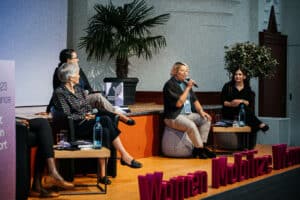
Keisha Mayuga first learned how to ride a bike when she was seven years old. In the years since, she has found the bicycle the fastest and most efficient means of transport and wants to make cycling a safe mobility option for everyone, especially women. A staunch advocate of cycling, Mayuga is focusing her research on creating transport systems that are inclusive, accessible, and safe for all individuals, regardless of their gender identity. But she is especially interested in making mobility work for children and the elderly.
“I’m still trying to get grandmas and children to get home in 30 minutes in a safe and dignified manner,” she joked on the Talking Transport Transformation podcast recorded in Berlin as part of the WomenMobilizeWomen conference celebrating “Remarkable Feminist Voices in Transport.”
That 30-minute commute is not an arbitrary number; her choice to make that a goal for sustainable mobility stems from a conversation she had many years ago with a colleague, who spent hours each day traveling to work only to have little time with her toddler at home. “Our transport system is taking so much time from life. From us living our lives, from mothers seeing their children, from us doing the things we like doing,” says Keisha. “I wanted to change that.”
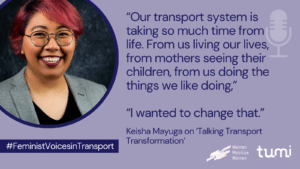
In her quest for change, the researcher actively engaged at the AltMobilityPH organization to bring information about alternative means of transportation to the public in the Phillipines. That can feel like a feminist act to some, given the amount of sexual harassment that she claims women face while using public transport in the Philippines. “It’s one of the reasons I started cycling instead of using public transport,” she says, noting the irony of having to choose between harassment during a bus ride and risking safety by biking on roads with little infrastructure for cyclists. “Those are the challenges women face.”
As for transforming transport to be more feminist and accessible, Keisha believes that men, who still hold most of the power, can play a big role in creating a culture shift simply by asking the women in the room to speak. “We forget when we’re planning for transport is that a lot of it is trying to shift the culture,” she says.
The rapidity with which that culture shift comes about may depend upon activists like Keisha, who are inspiring everyone with their work toward a more equitable society through policy and advocacy. You can hear more from this “Remarkable Feminist Voice in Transport” by listening to our Talking Transport Transformation podcast episode with her here
You are currently viewing a placeholder content from Podigee. To access the actual content, click the button below. Please note that doing so will share data with third-party providers.
More Information